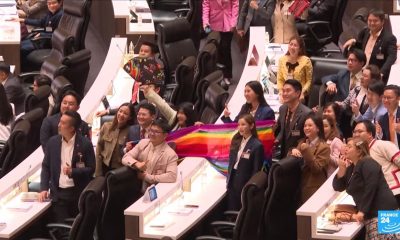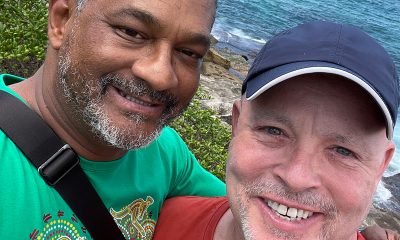Caribbean
Cuban lawmakers approve draft of new family code
Proposal could pave way for marriage equality
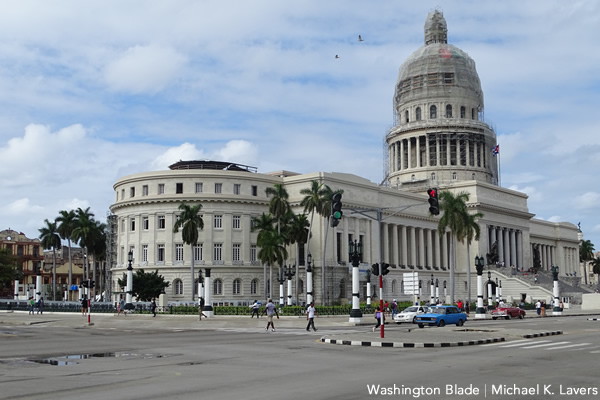
HAVANA — Cuban lawmakers on Tuesday approved a draft of a new family code that could pave the way for marriage rights for same-sex couples in the country.
Cubadebate, an official news website, reported the National Assembly approved the draft that does not contain a specific marriage equality provision. The proposal, however, states it would “protect all expressions of family diversity and each person’s right to build a family in coherence with the (Cuban) constitution and its principles of equity, non-discrimination and human dignity.”
Mariela Castro, the daughter of former President Raúl Castro who is the director of the National Center for Sexual Education, is among the members of the National Assembly who spoke in favor of the draft.
“It will guarantee the rights of groups of people whose realities were not sufficiently understood at the beginning of the revolutionary process,” said Mariela Castro before the vote, according to Cubadebate.
Mariela Castro in her comments referred to the Cuban revolution that brought her uncle, Fidel Castro, to power in 1959.
The Cuban government after the revolution sent gay men and others to work camps known by the Spanish acronym UMAPs. Cubans with AIDS were forcibly quarantined in state-run sanitaria until 1993.
“This bill does resemble the society in which we live: A complex, diverse and plural society,” said Mariela Castro.
Cubadebate reported Cubans will have a chance to comment on the bill during a “popular consultation” that will take place from Feb. 1-April 30, 2022.
Cuban voters in 2019 overwhelmingly approved the draft of their country’s new constitution, but independent LGBTQ activists sharply criticized the government’s decision to remove a marriage equality amendment before the referendum on it. Tremenda Nota, the Los Angeles Blade’s media partner in Cuba, reported the government has not announced when a referendum on the new family code will take place.
Tuesday’s vote took place less than six months after anti-government protests took place across Cuba.
Tremenda Nota Editor Maykel González Vivero is among the hundreds of people who were arrested during the protests.
Yoan de la Cruz, who is gay, used Facebook Live to livestream the first July 11 protest that took place in San Antonio de los Baños in Artemisa province.
Authorities subsequently arrested De La Cruz, and they are seeking an 8-year prison sentence for him. De La Cruz’s trial reportedly began on Dec. 13.
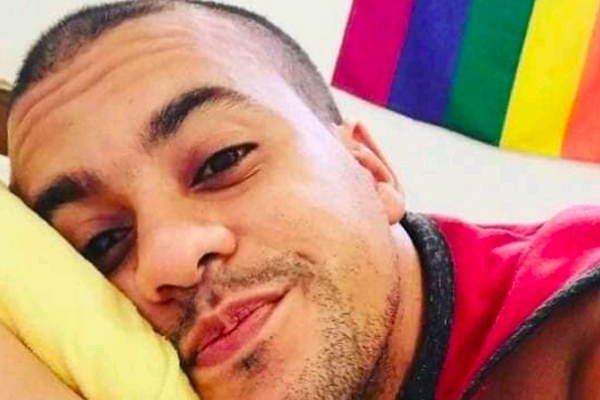
Caribbean
Dominica High Court of Justice decriminalizes homosexuality
Gay man challenged statute in 2019

ROSEAU, Dominica — Dominica’s High Court of Justice on Monday struck down provisions of a law that criminalized consensual same-sex sexual relations.
A gay man who remains anonymous in 2019 challenged sections of the country’s Sexual Offenses Act that criminalized anal sex and “gross indecency” with up to 10 years and 12 years in prison respectively. The plaintiff argued the provisions violated his constitutional rights.
The Dominica Equality and Sexual Expression Association and the Eastern Caribbean Alliance for Diversity and Equality, a group that advocates for LGBTQ+ and intersex rights in the region, in a press release noted the court in its ruling affirmed “the criminalization of consensual same-sex activity between adults is unconstitutional.” The groups added Justice Kimberly Cenac-Phulgence “declared that the laws commonly known as buggery and gross indecency laws, contravenes the constitution of the Commonwealth of Dominica, namely the right to liberty, freedom of expression, and protection of personal privacy.”
“It is long past time that the dignity and dreams of all Dominicans were recognized,” said DESEA Executive Director Sylvester Jno Baptiste in the press release. “We are all God’s children, and he loves us all equally. Laws that treat some Dominicans as less than others, have no place in a just society.”
Dominica is a former British colony that is located between Guadeloupe and Martinique in the Lesser Antilles.
Antigua and Barbuda, St. Kitts and Nevis, Barbados, and Trinidad and Tobago in recent years have decriminalized consensual same-sex sexual relations.
The Inter-American Commission on Human Rights in 2021 issued a decision that said Jamaica must repeal its colonial-era sodomy law. The country’s Supreme Court last year ruled against a gay man who challenged it.
A judge on St. Vincent and the Grenadines’s top court in February dismissed two cases that challenged the country’s sodomy laws.
“Decriminalization helps create an environment where LGBTQ individuals can live openly without fear of persecution, enabling them to access health care, education, and employment without facing discrimination,” said Outright Executive Director Maria Sjödin on Monday in response to the Dominica ruling. “The repeal of these discriminatory laws is a testament to the tireless efforts of activists, advocates, and allies who have long fought for justice and equality. It is a victory for human rights and a significant milestone in the ongoing struggle for LGBTQ rights in the Caribbean.”
Caribbean
Gay couple seeks recognition of Fla. marriage in Turks and Caicos
Tim Haymon denied spousal exemption under territory’s immigration law
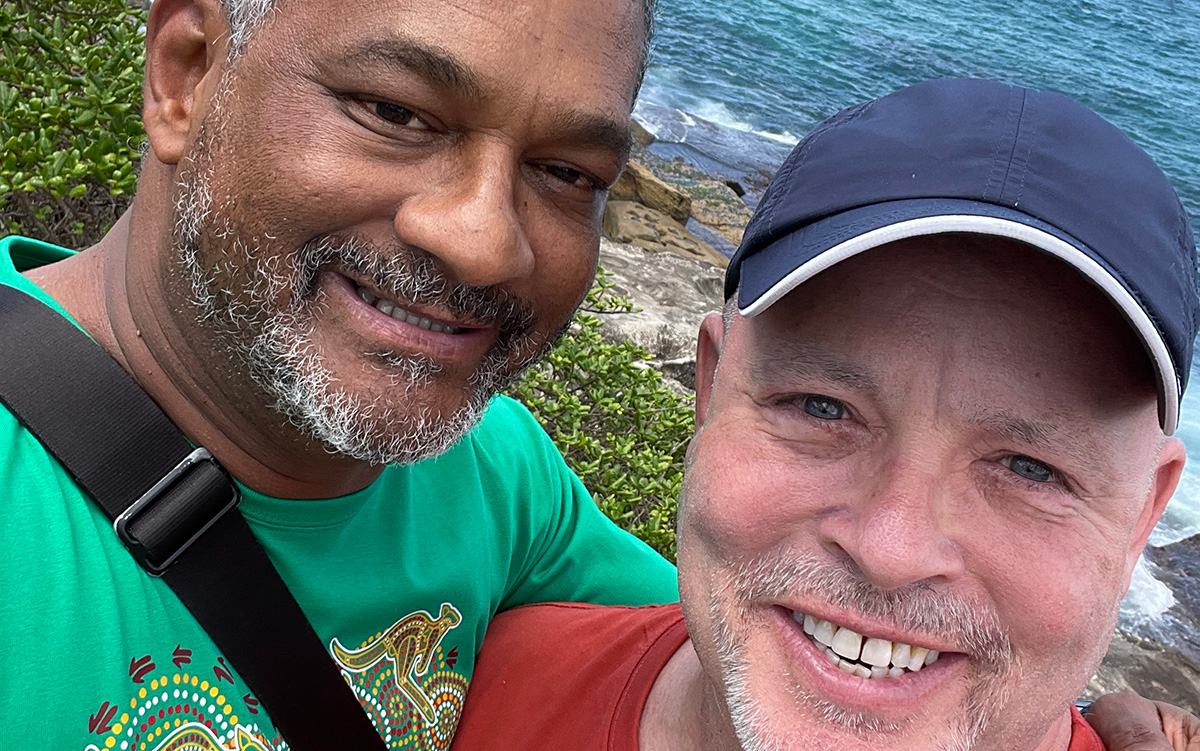
PROVIDENCIALES, Turks and Caicos — A same-sex couple has filed a lawsuit against the Turks and Caicos Islands’ government after it refused to legally recognize their marriage.
Richard Sankar, a realtor who has lived in the British territory for 27 years and is a Turks and Caicos citizen, married Tim Haymon in Fort Lauderdale, Fla., in 2020.
Haymon, who is American, in August 2021 applied for a spousal exemption under the Turks and Caicos’ immigration law on the basis of his status as a spouse that would have allowed him to legally live and work in the territory. The Turks and Caicos’ Director of Immigration denied the application because its definition of marriage used does not include same-sex couples. Haymon and Sankar filed their lawsuit in October 2021.
Stanbrook Prudhoe, a law firm in the Turks and Caicos, represents Haymon and Sankar.
The trial court, which is also known as the Supreme Court, heard the case in November 2022.
The court on March 1 said the work permit exemption refusal violates the Turks and Caicos’ constitution that bans discrimination based on sexual orientation. It has yet to release the ruling itself.
“I am suing for the right to recognize our marriage,” Haymon told the Washington Blade on March 2 during a Zoom interview from Sydney where he and Sankar were on vacation. “Just like any other spouse coming to the Turks and Caicos Islands and marrying a Turks and Caicos islander, we’re just wanting the same rights.”
The Turks and Caicos are a group of islands that are located roughly 650 miles southeast of Miami.
Consensual same-sex sexual relations have been decriminalized in the British territory since 2001. The constitution states “every unmarried man and woman of marriageable age (as determined by or under any law) has the right to marry a person of the opposite sex and found a family.”
Then-Cayman Islands Grand Court Chief Justice Anthony Smellie in 2019 ruled same-sex couples can legally marry in the Cayman Islands. The Caymanian Court of Appeal later overturned the decision, and the British territory’s Civil Partnership Law took effect in 2020.
Then-Bermuda Supreme Court Justice Charles-Etta Simmons in 2017 issued a ruling that paved the way for gays and lesbians to legally marry in the British territory. The Domestic Partnership Act — a law then-Gov. John Rankin signed that allows same-sex couples to enter into domestic partnerships as opposed to get married — took effect in 2018.
Bermuda’s top court later found the Domestic Partnership Act unconstitutional. The Privy Council, a British territories appellate court in London, upheld the law. It also ruled same-sex couples do not have the constitutional right to marry in the Cayman Islands.
Haymon and Sankar told the Blade they expect the Privy Council will eventually hear their case.
“We are prepared for that,” said Sankar. “Our attorneys are prepared for that.”
Haymon added he hopes their lawsuit will inspire other same-sex couples in the Turks and Caicos to fight for legal recognition of their relationships.
“We hope that one of the locals will now take up the flag and say I want to marry my partner,” he said.
Same-sex couples can legally marry in Cuba, Puerto Rico, the U.S. Virgin Islands, Saba, St. Martin, St. Barts, St. Eustatius, Guadeloupe, Martinique and Bonaire.
The Joint Court of Justice of Aruba, Curaçao, Sint Maarten and of Bonaire, Sint Eustatius and Saba in 2022 ruled Aruba and Curaçao, which are constituent countries within the Netherlands, must allow same-sex couples to legally marry.
Aruban lawmakers are currently considering a marriage equality bill. The Dutch Supreme Court in the coming months is expected to rule on the Aruba and Curaçao case.
Caribbean
Challenges to St. Vincent and the Grenadines’ sodomy laws dismissed
‘Freedom and equality is worth fighting for’
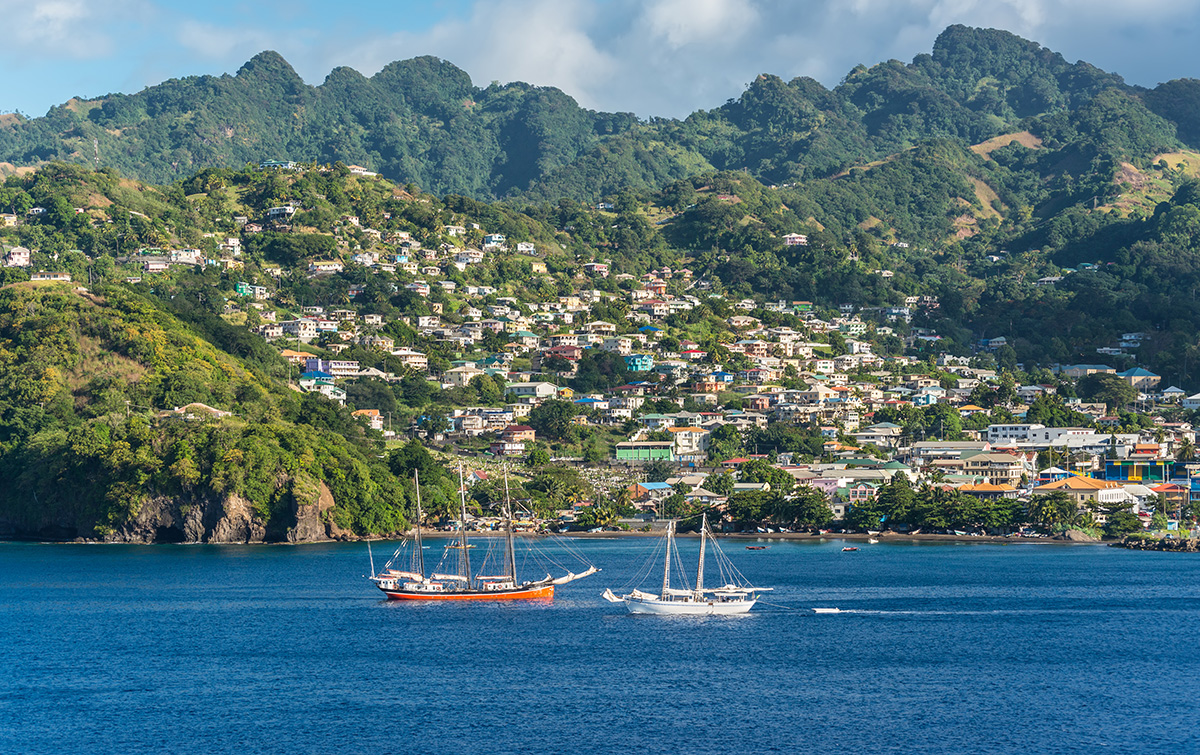
KINGSTOWN, St. Vincent and the Grenadines — A judge on St. Vincent and the Grenadines’ top court on Friday dismissed two cases that challenged the country’s sodomy laws.
Two gay men from St. Vincent, the country’s main island, in 2019 challenged laws that criminalize consensual same-sex sexual relations. High Court Justice Esco Lorene Henry on Friday dismissed the two cases.
Sean Macleish, one of the two plaintiffs who lives in the U.S., expressed disappointment in the decision.
“I am disappointed with the judge’s ruling and will be discussing our options with my legal team because freedom and equality is worth fighting for,” Macleish told the Washington Blade on Friday in an email.
Jeshua Bardoo, a lawyer who founded Equal Rights, Access and Opportunities SVG, a Vincentian advocacy group, said Friday is a “sad day for LGBTQ+ rights in St. Vincent and the Grenadines.”
“Internationally and regionally, laws similar to those challenged in these cases have been declared unconstitutional and in violation of the rights of LGBTQ+ persons,” said Bardoo in a press release the Eastern Caribbean Alliance, a regional LGBTQ+ rights group, issued. “These archaic and draconian colonial laws, though not strictly enforced, symbolically denigrate LGBTQ+ persons as second-class citizens in their own country and perpetuate prejudice and stigma against them.”
Outright International Executive Director Maria Sjödin also criticized the ruling.
“The rejection of the bid to decriminalize same-sex conduct in St. Vincent and the Grenadines is a huge disappointment and significant setback for LGBTQ rights in the country,” said Sjödin. “We urge the government to reconsider its position and take meaningful steps towards ensuring the full protection and dignity of all citizens, regardless of their sexual orientation or gender identity.”
Antigua and Barbuda, St. Kitts and Nevis, Barbados and Trinidad and Tobago in recent years have decriminalized consensual same-sex sexual relations.
The Inter-American Commission on Human Rights in 2021 ruled Jamaica must repeal its colonial-era sodomy law. The country’s Supreme Court last year ruled against a gay man who challenged it.

KINGSTON, Jamaica — The Jamaican Supreme Court on Friday ruled against a gay man who challenged the country’s colonial-era sodomy law.
Maurice Tomlinson, an activist from Montego Bay who now lives in Canada with his husband, in the lawsuit he filed in November 2015 notes the statute violates the right to privacy and other provisions of the Jamaican constitution. He also argues the sodomy law violates “the right to protection from inhuman or degrading punishment or other treatment.”
The Jamaica Coalition for a Healthy Society, the Lawyers’ Christian Fellowship, Hear the Children’s Cry and a group to which the ruling refers as “The Churches” defended the law. Tomlinson on Friday told the Washington Blade that all four of these entities “have American affiliates.”
“Thankful for the privilege of living in a country where my love isn’t illegal,” wrote Tomlinson on his Facebook page.
Jamaica is among the dozens of countries in which consensual same-sex sexual relations remain criminalized.
Antigua and Barbuda, St. Kitts and Nevis, Barbados and Singapore last year decriminalized homosexuality.
The Mauritius Supreme Court earlier this month issued a ruling that struck down the country’s colonial-era sodomy law. Courts in Belize and Trinidad and Tobago in recent years have also struck down criminalization statutes in their respective countries.
The Caribbean Court of Justice in 2018 struck down a Guyana law that criminalized cross-dressing.
Tomlinson told the Blade that he can appeal the ruling to the Jamaican Court of Appeal and then to the Privy Council in London.
Jamaica gained independence from the U.K. in 1962, and a referendum on whether the country should remove the British monarch as head of state is expected to take place next year. The Privy Council is an appellate court for British territories, but it can hear appeals of Jamaican Court of Appeal rulings.
Caribbean
Trans woman remains in prison two years after protesting against Cuban government
Brenda Díaz among hundreds arrested on July 11, 2021
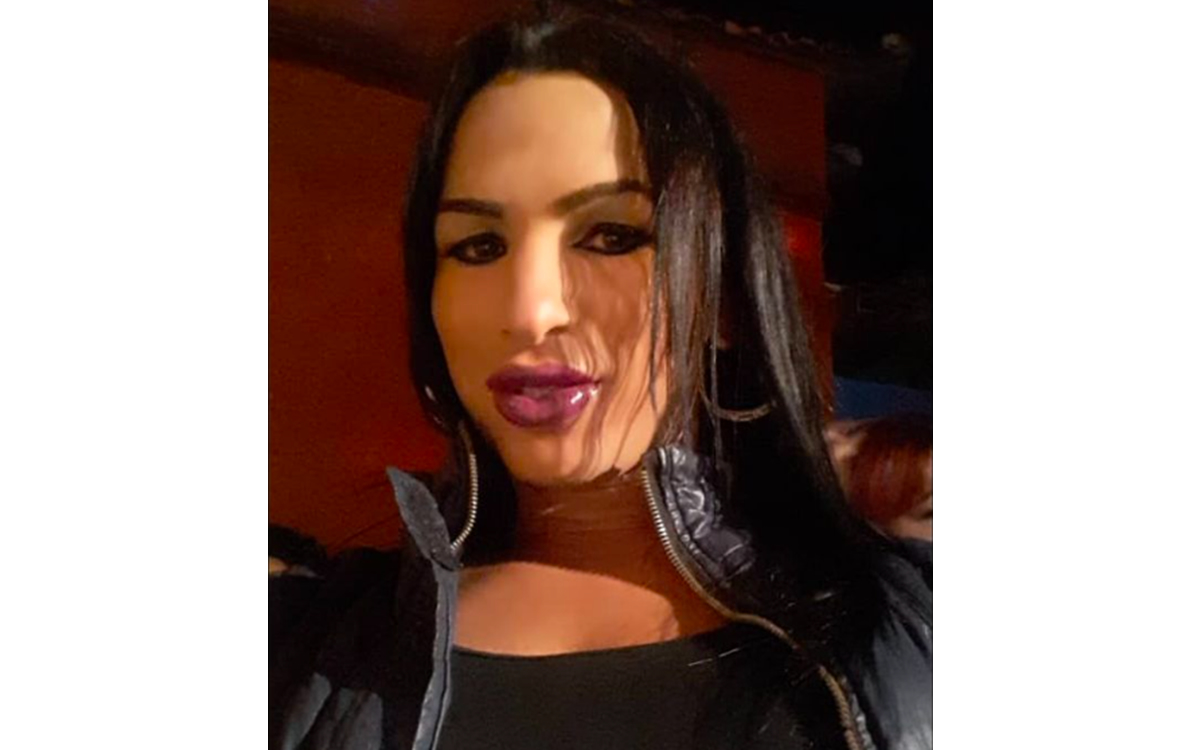
A Transgender woman with HIV who participated in an anti-government protest in Cuba on July 11, 2021, remains in prison two years later.
Authorities arrested Brenda Díaz in Güira de Melena in Artemisa province.
The Güira de Melena protest was one of dozens against the Cuban government that took place across the country July 11, 2021. Díaz is among the hundreds of people who were arrested during the demonstrations.
A Havana court last year sentenced García to 14 years in prison. She appealed her sentence, but Cuba’s People’s Supreme Court upheld it.
Yoan de la Cruz, who is gay, used Facebook Live to livestream the first July 11 protest that took place in San Antonio de los Baños in Artemisa province. The same Havana court that sentenced Díaz condemned De La Cruz to six years in prison, but he was released in May 2022 and placed under house arrest for five years.
Mariela Castro, the daughter of former Cuban President Raúl Castro who directs the country’s National Center for Sexual Education, earlier this year during an interview with Agencia EFE dismissed reports that Díaz continues to suffer mistreatment in prison. The U.S. State Department has repeatedly urged Cuban authorities to release Díaz and others who participated in the July 11 protests.
“Today, we mark two years since tens of thousands of Cubans across the entire island raised their voices for their fundamental freedoms,” said Secretary of State Antony Blinken on Tuesday in a statement. “The United States stands in solidarity with those in Cuba who continue to desire a free democracy where their voices are heard, their businesses prosper and their children can achieve a brighter future.”
“The world will not forget those who bravely made their voices heard in the face of extreme repression, including the more than 700 individuals who remain in Cuban jails, condemned to prison sentences ranging up to 25 years for exercising their freedoms of expression and peaceful assembly,” added Blinken.
Florida Congresswoman Debbie Wasserman Schultz is among the American lawmakers who also acknowledged the second anniversary of the July 11 protests.
“Two years ago today Cubans marched to demand their freedom,” said the Florida Democrat in a tweet. “Those calls cannot go unanswered. We must stand strong against the regime until they free political prisoners and respect human rights.”
Miami Mayor Francis Suarez, a Republican presidential candidate who is of Cuban descent, in a tweet noted the “largest protest for freedom in Cuba began two years ago today.” Suarez also said the Biden administration “ignored their pleas for help.”
“As president, I would have a message to the oppressors of Cuba — freedom is coming,” tweeted Suarez.
Caribbean
Mariela Castro dismisses reports of Transgender prisoner’s treatment
Brenda Díaz in prison after participating in anti-government protest
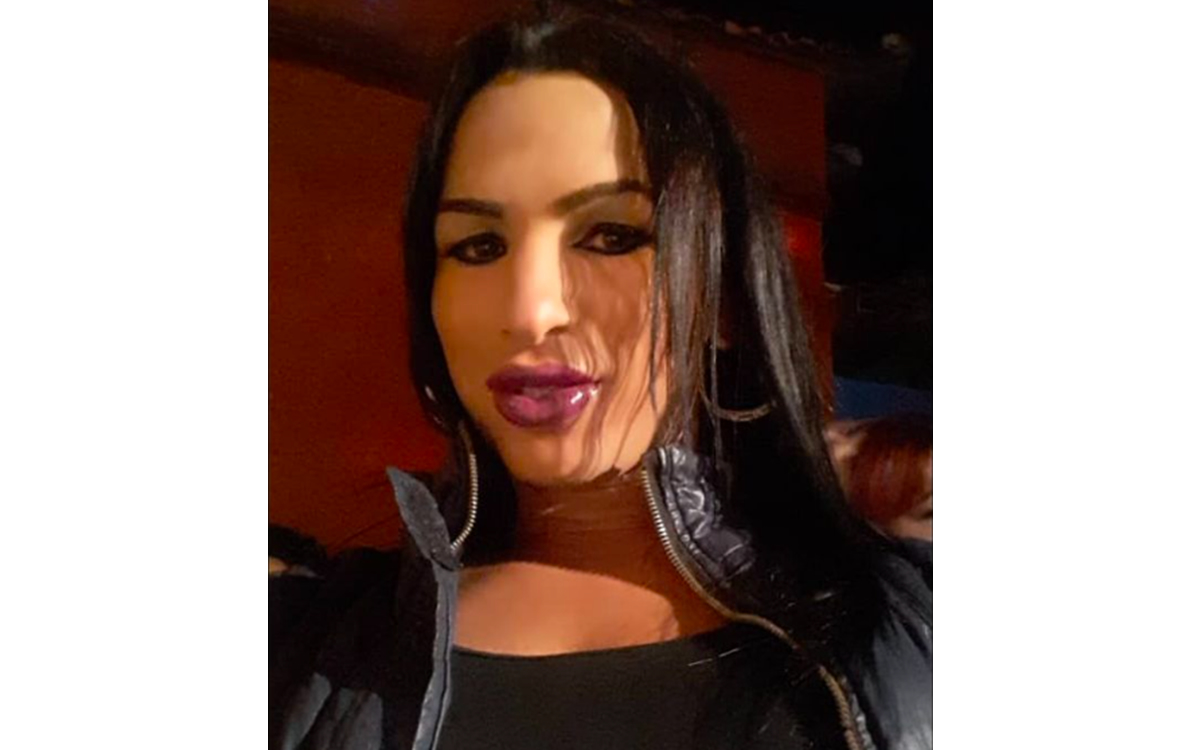
HAVANA — The daughter of former Cuban President Raúl Castro this week described the case of a Transgender woman who is serving a 14-year prison sentence after she participated in an anti-government protest in 2021 as “an oversized story full of fantasies.”
Mariela Castro, who directs Cuba’s National Center for Sexual Education, spoke about Brenda Díaz during an interview that Agencia EFE published on May 3.
Authorities arrested Díaz in Güira de Melena in Artemisa province on July 11, 2021.
The Güira de Melena protest was one of dozens against the Cuban government that took place across the country on that day.
A Havana court last year sentenced Díaz to 14 years in prison. Cuba’s highest court later upheld the sentence.
The State Department in a previous statement to the Washington Blade that called for Díaz’s release expressed concern over her “well-being” amid “reports that she is being held in a men’s prison and is not receiving appropriate medical treatment.”
Díaz’s mother has previously said her daughter, who lives with HIV, has access to antiretroviral drugs, but other medications are not always available. Díaz’s mother has also complained about the “very bad quality” of food in prison.
“Brenda is very well there,” Mariela Castro told Agencia EFE. “She does not know that she is a media figure that has been invented against Cuba.”
Mariela Castro said Díaz receives “very good food, better than her family has” in prison, and she is able to participate in sport activities and a library. Mariela Castro further described reports about Díaz and her case as “little gossips” and “a media show by the press and corporate agencies.”
“It is sad that the same lie to attack Cuba with this story continues to be reproduced,” said Mariela Castro.
Caribbean
Barbados High Court strikes down country’s sodomy law
Ruling ‘a pivotal moment for equality’ for all Barbadians
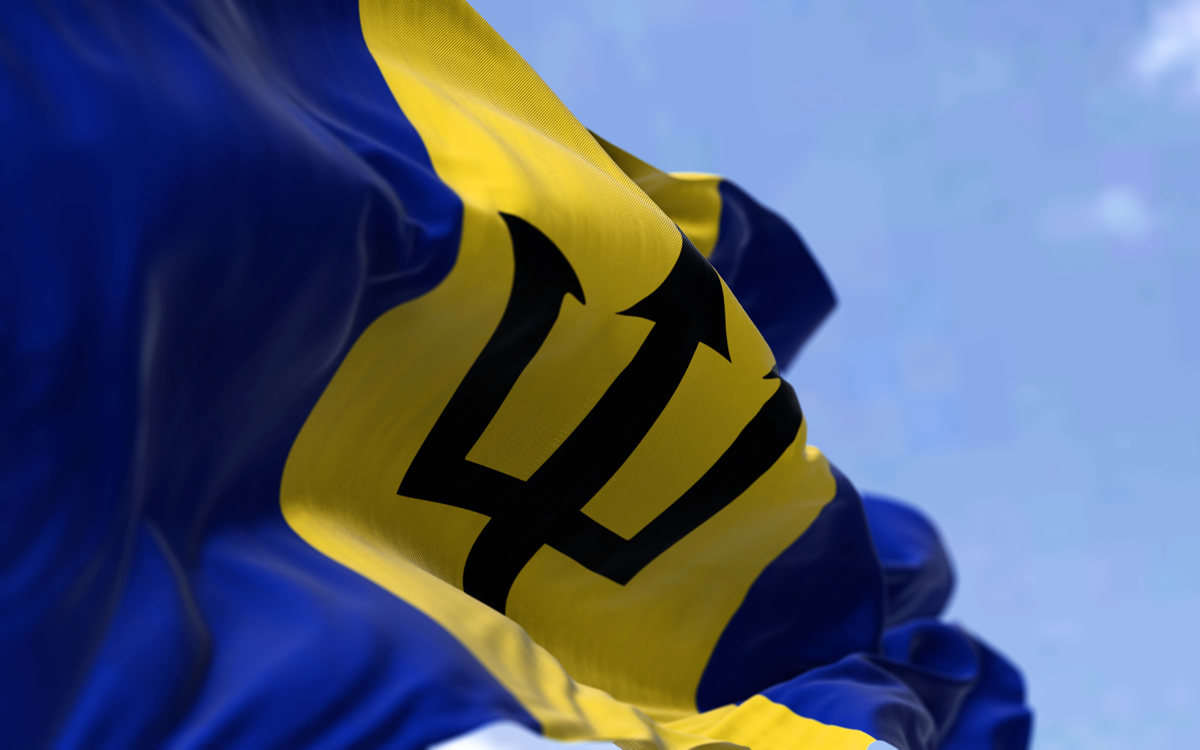
BRIDGETOWN, Barbados — The Barbados High Court on Monday struck down a colonial-era law that criminalized consensual same-sex sexual relations.
The ruling specifically struck down Sections 9 and 12 of the Barbados Sexual Offenses Act.
Men who were found guilty of engaging in consensual same-sex sexual relations under Section 9 could have faced up to life in prison. Men and women who were convicted of violating Section 12 could have faced up to 10 years in prison.
The London-based Human Rights Trust in a press release noted Equals, an LGBTQ+ and intersex rights group in Barbados, and the Eastern Caribbean Alliance for Diversity and Equality challenged the law on behalf of two local activists.
“Today’s ruling is one step, one action of many impacting the LGBTQ+ community of Barbados,” said one of the plaintiffs in the Human Rights Trust press release. “As it resonates with me, I already know there is more work to be done. We will continue on together.”
The other plaintiff in the press release said the ruling is “a pivotal moment for equality for all Barbadians and one more step in the journey towards more inclusivity for LGBT citizens.”
“This will definitely mean that I and my community can navigate life with just a little more ease and comfort, in the knowledge that Barbados has taken a step to understand us and respect us,” they said.
Judges earlier this year struck down colonial-era sodomy laws in St. Kitts and Nevis and Antigua and Barbuda.
The Belizean Court of Appeal in 2019 upheld a ruling that struck down the country’s sodomy law. A judge on the Trinidad and Tobago High Court in 2018 struck down its statute that criminalized consensual same-sex sexual relations.
The Inter-American Commission on Human Rights last year in a landmark decision said Jamaica must repeal its sodomy law. Then-British Prime Minister Theresa May in 2018 said she “deeply” regrets colonial-era criminalization laws the U.K. introduced.
Donnya Piggott, an activist from Barbados, is the co-founder of Pink Coconuts, an online platform for LGBTQ+ and intersex travelers. Piggott is also Open for Business’ Caribbean Campaign lead.
Piggott in a statement said the Barbados ruling is “a long time coming, and the advocacy journey has been arduous.”
“We’re thankful to all the advocates who worked hard on this,” said Piggott. “It’s beautiful to see Barbados’ step towards inclusion and we hope it signals to other Caribbean islands that our people only stand to benefit from decriminalization as well as other inclusive laws, and the economic opportunities it brings for the entire region.”
The Associated Press reported the Barbadian government has not said whether it will appeal the ruling.
Caribbean
Aruba, Curaçao ordered to extend marriage rights to same-sex couples
‘The right to same-sex marriage has been established’
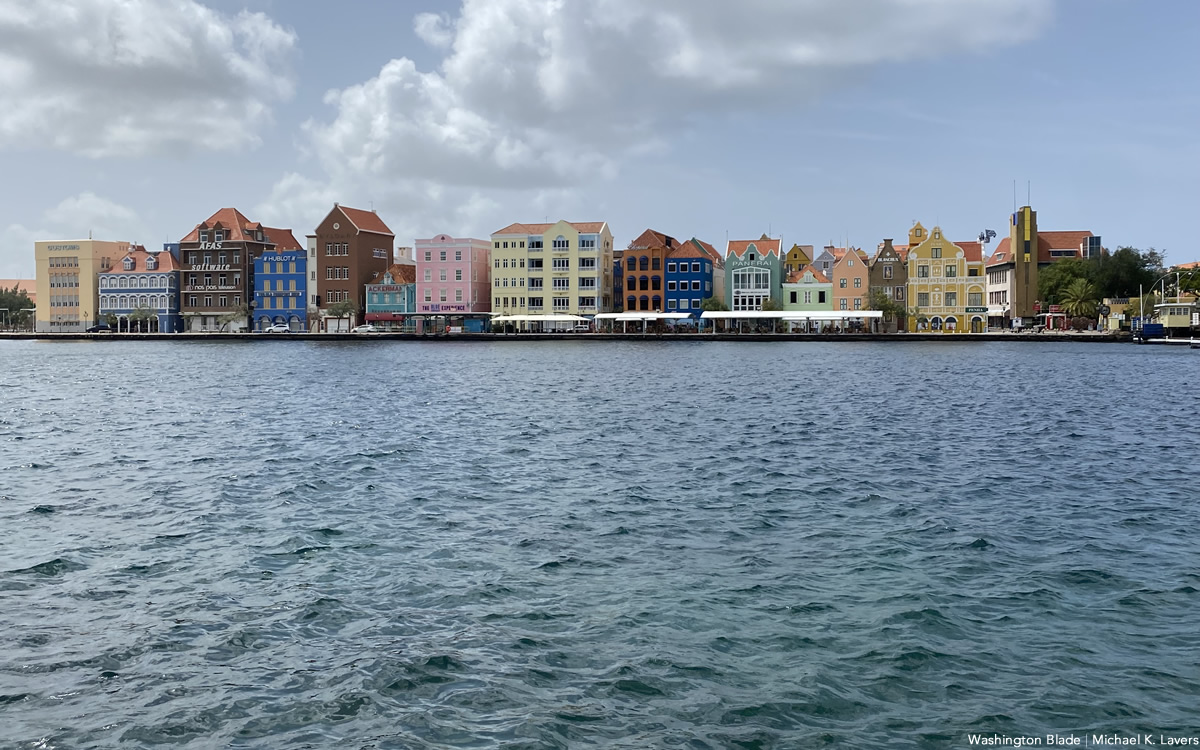
WILLEMSTAD, Curaçao — A court on Tuesday ruled Aruba and Curaçao must allow same-sex couples to marry.
The Joint Court of Justice of Aruba, Curaçao, Sint Maarten and of Bonaire, Sint Eustatius and Saba that has jurisdiction over three constituent countries (Aruba, Curaçao and Sint Maarten) and three special municipalities (Bonaire, Sint Eustatius and Saba) within the Netherlands issued the ruling in two marriage equality cases that Fundacion Orguyo Aruba and Human Rights Caribbean in Curaçao filed on behalf of two women who want marriage rights in Aruba and Curaçao.
“The court has come to the conclusion that excluding same-sex marriage is in violation of the prohibition of discrimination and incompatible with state regulations,” reads the ruling, according to the Curaçao Chronicle, an English newspaper in Curaçao.
Same-sex couples have been able to legally marry and adopt children in Bonaire, Sint Eustatius and Saba since 2012.
Same-sex couples cannot legally marry in Aruba, Curaçao and Sint Maarten. The countries, however, must recognize same-sex marriages from the Netherlands, Bonaire, Sint Eustatius and Saba.
The Court of First Instance in Curaçao on Sept. 13, 2021, ruled the lack of marriage rights for same-sex couples violated the country’s constitution. Prime Minister Gilmar Pisas’ government appealed the decision in the Human Rights Caribbean case.
Aruba’s registered partnership law took effect in September 2021. Accion 21, a centrist party that openly gay Sen. Miguel Mansur chairs, in June introduced a marriage equality bill.
Janice Tjon Sien Kie of Human Rights Caribbean on Tuesday told the Washington Blade during a telephone interview the ruling could take effect as early as March 7 if the Curaçaoan government does not appeal it to the Dutch Supreme Court in The Hague.
“As of March 7, Curaçao has marriage equality,” she said. “If they (the government) go into appeal, it would only cause a delay of approximately 18 months.”
Mansur and Melissa Gumbs, an openly lesbian member of the Sint Maarten Parliament, attended the LGBTQ Victory Fund’s International LGBTQ Leaders Conference that took place in D.C. this past weekend.
“Essentially the right to same-sex marriage has been established by the appeals court in both Curaçao and Aruba,” Mansur told the Blade on Tuesday.
Mansur noted the ruling does not address adoption rights for same-sex couples. He told the Blade on Wednesday he does not expect the Aruban government to appeal it, and the Advisory Council will receive the marriage equality bill on Dec. 16.
Gumbs, who founded the center left Party for Progress in Sint Maarten in 2019, on Tuesday told the Blade there “is precedent now within the Caribbean part of the kingdom (of the Netherlands) that it’s not right to withhold same-sex marriage rights from people.” Gumbs added her party plans to introduce a marriage equality bill in Parliament.
“That’s something that we will be using,” said Gumbs, referring to the ruling.
Cuba, Puerto Rico, the U.S. Virgin Islands, St. Martin, St. Barthélemy are the other jurisdictions in the Caribbean in which same-sex couples can legally marry.
Caribbean
Cuba becomes latest country with marriage equality
Referendum took place amid continued government persecution
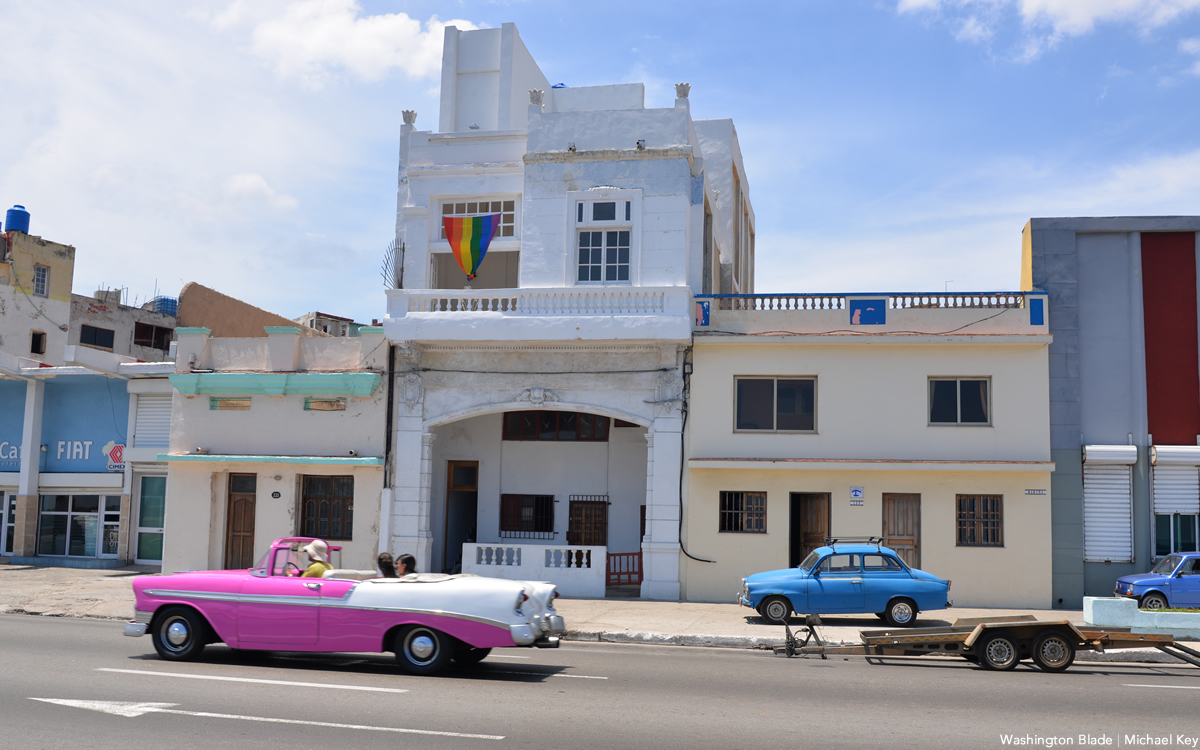
HAVANA — Cubans on Sunday approved a new family code that extends marriage and adoption rights to same-sex couples.
Gramna, the official newspaper of the Cuban Communist Party, on Monday reported 66.9 percent of Cubans who participated in the referendum voted in favor of the new family code.
“Sept. 25, 2022, is already a historic day,” said Gramna. “The island has once again demonstrated that the revolution will never stop in its quest for more justice, independent of its adversaries. The road has never been easy, but it is very worthy.”
Mariela Castro, the daughter of former President Raúl Castro who spearheads LGBTQ+ and intersex issues in Cuba as director of the country’s National Center for Sexual Education, is among those who support the new family code. Mariela Castro on Sunday posted to her Facebook page a picture of her voting for it in Havana, the Cuban capital.
“I voted yes for Cuban families, for a socialist Cuba, for the world’s most revolutionary and humanist family code, for a socialist state built upon rights and social justice that recognizes and protects all families,” said Mariela Castro after she voted.
The Cuban government in the years after the 1959 revolution that brought Mariela Castro’s uncle, Fidel Castro, to power, sent gay men and others to work camps. Cubans with AIDS were forcibly quarantined in state-run sanitaria until 1993.
Cuba joins Costa Rica, Colombia, Ecuador, Brazil, Argentina, Uruguay, Chile, Mexico City and several Mexican states that have extended marriage rights to same-sex couples. Puerto Rico, the U.S. Virgin Islands, Aruba, Curaçao, Bonaire, French Guiana, Guadeloupe, Martinique, St. Barthélemy, St. Martin, Sint Maarten, Sint Eustatius and Saba also have marriage equality.
Cuban government critics face harassment, arrest
Sunday’s referendum took place nearly four years after Cuban voters overwhelmingly approved their country’s new constitution. The government’s decision to remove a marriage equality amendment that religious groups had publicly criticized sparked outrage among independent LGBTQ+ and intersex activists.
LGBTQ+ and intersex Cubans and others who publicly criticize the Cuban government also continue to face harassment, discrimination and arrest.
Maykel González Vivero, editor of Tremenda Nota, the Washington Blade’s media partner in Cuba, is among the hundreds of people who were arrested during anti-government protests that took place across the country on July 11, 2021. The U.S. in 2019 granted asylum to Yariel Valdés González, a Blade contributor who suffered persecution in Cuba because he is a journalist.
Yoan de la Cruz, a gay man who used Facebook Live to livestream the first July 11 protest that took place in San Antonio de los Baños in Artemisa province. De La Cruz subsequently received a 6-year prison sentence, but he was released on house arrest in May.
Brenda Díaz, a Transgender woman with HIV who participated in a July 11 protest in Güira de Melena in Artemisa province, has been sentenced to 14 years in prison. The State Department has said it is “very concerned” about Díaz’s health and well-being and urged the Cuban government to release her.
Caribbean
St. Kitts and Nevis colonial-era sodomy law struck down
Judge ruled colonial-era statute unconstitutional
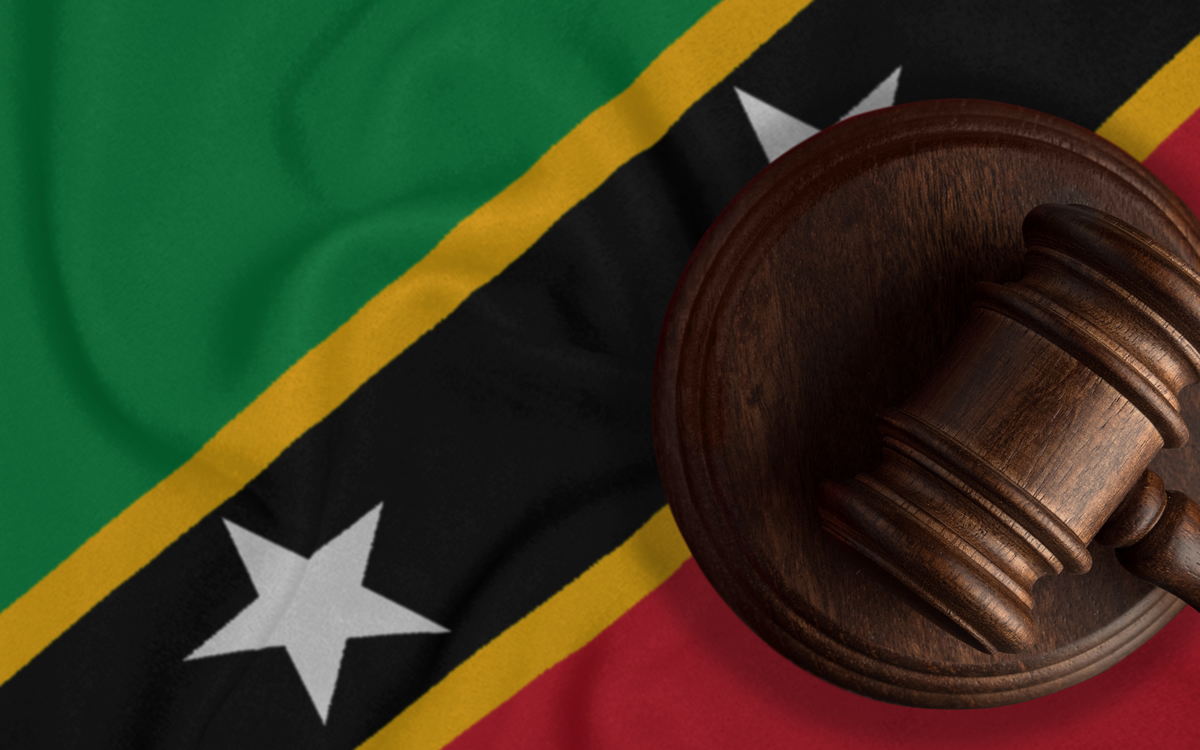
BASSETERRE, St. Kitts and Nevis — A judge on Monday ruled a law that criminalize consensual same-sex sexual relations in St. Kitts and Nevis are unconstitutional.
Justice Trevor M. Ward of the High Court of Justice in St. Kitts and Nevis struck down Sections 56 and 57 of the country’s Offenses Against the Person Act.
“Section 56 of the Offenses Against the Person Act, Cap. 4.21 contravenes Sections 3 and 12 of the Constitution of the Federation of Saint Christopher and Nevis, namely, the right to protection of personal privacy and the right to freedom of expression, and, as such, is null and void and of no force and effect to the extent that it criminalizes any acts of constituting consensual sexual conduct in private between adults,” said Ward in his decision.
Ward further said Section 57 of the law violates “the right to protection of personal privacy and the right to freedom of expression” in the country’s constitution.
Jamal Jeffers, a gay man, and the St. Kitts and Nevis Alliance for Equality, a local LGBTQ+ and intersex rights group, challenged the law.
“This decision strongly establishes that a person’s sexuality should never be the basis for any discrimination,” said St. Kitts and Nevis Alliance for Equality Executive Director Tynetta McKoy in a press release the Eastern Caribbean Alliance for Diversity and Equality, a regional LGBTQ and intersex rights group, released on Monday. “We welcome the recognition of this fact, one for which we have long advocated.”
A judge in July struck down Antigua and Barbuda’s colonial-era sodomy law.
The Belizean Court of Appeal in 2019 upheld a ruling that struck down the country’s sodomy law. A judge on the Trinidad and Tobago High Court in 2018 struck down its statute that criminalized consensual same-sex sexual relations.
The Inter-American Commission on Human Rights last year in a landmark decision said Jamaica must repeal its sodomy law. Similar cases have been filed in Barbados and St. Lucia.
Then-British Prime Minister Theresa May in 2018 said she “deeply” regrets colonial-era criminalization laws the U.K. introduced. Nick Herbert, a member of the British House of Lords who advises outgoing Prime Minister Boris Johnson on LGBTQ+ and intersex issues, last December told the Washington Blade during an interview in D.C. that his country has a “historic responsibility for these laws and their legacy.”
“[Of] the seven Caribbean and 34 Commonwealth countries that criminalized same sex intimacy, this is the second to strike down these discriminatory laws in 2022,” said Eastern Caribbean Alliance for Diversity and Equality Executive Director Kenita Placide on Monday in their organization’s press release. “Our strategy has been multilayered; working with activists on the ground, our colleagues, friends, allies and family. This win is part of the transformative journey to full recognition of LGBTQ persons across the OECS (Organization of Eastern Caribbean States.) It is a definitive yes to change, yes to privacy, yes to freedom of expression, and we are happy to be part of this historic moment.”
-

 Arkansas5 days ago
Arkansas5 days agoAnother wound that will never heal; another tragic teen’s death
-

 Political commentary & analysis4 days ago
Political commentary & analysis4 days agoAnti-trans British pediatrician backpedals on her review on HRT
-

 West Hollywood4 days ago
West Hollywood4 days agoBouncer at Heart WeHo arrested in brutal beating of gay stylist
-

 Celebrity News3 days ago
Celebrity News3 days agoJodie Foster honored at TCL’s Chinese Theatre handprint event
-

 Texas2 days ago
Texas2 days agoTexas Governor Abbott: “We Want To End” trans teachers
-

 Editor's Letter3 days ago
Editor's Letter3 days agoRemembering Columbine 25 years later, a reporter’s tale
-
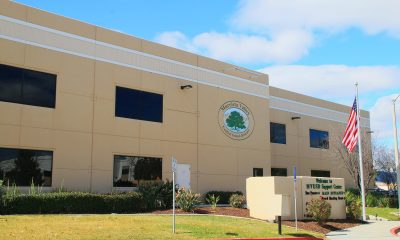
 Riverside County4 days ago
Riverside County4 days agoMurrieta Valley School Board votes to defy state over trans policy
-
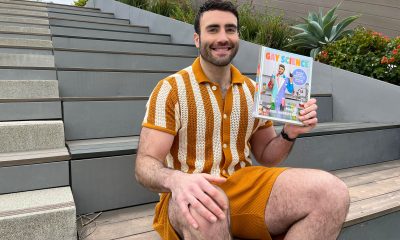
 Books3 days ago
Books3 days agoRob Anderson knows you think he’s annoying
-

 Pennsylvania5 days ago
Pennsylvania5 days agoMoms for Liberty member, others block Maulik Pancholy’s speech
-

 North Carolina2 days ago
North Carolina2 days agoRaleigh N.C. Moms for Liberty panel touts anti-LGBTQ+ agenda

